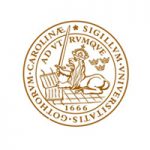项目介绍
Lund University was founded in 1666 and is repeatedly ranked among the world’s top universities. The University has around 47 000 students and more than 8 800 staff based in Lund, Helsingborg and Malmö. We are united in our efforts to understand, explain and improve our world and the human condition.
Lund University welcomes applicants with diverse backgrounds and experiences. We regard gender equality and diversity as a strength and an asset.
The doctoral education
The doctoral position, announced at the Centre for Theology and Religious Studies (CTR), is part of “The Middle East in the Contemporary World” research programme at the Centre for Advanced Middle Eastern Studies (CEMS). The doctoral student will be part of the “EcoCos” project conducted by Associate Professor Sami Al-Daghistani at CTR and CMES, Lund University. The doctoral student is expected to participate in activities both at CTR and CMES.
The primary language of the doctoral programme is English. However, non-Swedish speaking students are expected to acquire basic skills in Swedish during their employment.
Economic Cosmology: Ethics, Sustainability, and the Nonhuman in the Muslim World (EcoCos)
The Sharī‘a’s law has been crucial for understanding ethical approaches in Islamic tradition, including within economic and environmental thought. EcoCos analyzes sources from Islamic traditions – both pre-modern and modern – as resources for a new ethics of sustainability and places itself at the forefront of an on-going discussion on economic and environmental concerns, as well as their relation to knowledge production. It is devised as a critical and comparative study of contemporary (21st century) and classical (8th-16th century) epistemological, philosophical, and practical aspects of economic thought and the nonhuman across the Muslim world, especially in the MENA and in South(east) Asia regions.
This interdisciplinary project investigates ethical approaches to economics, sustainability, and the nonhuman environment – as a space that is more complex than just an invariable proxy for the human. Rather than embracing the fields of economic science and environmental studies in the context of neoliberal capitalism, this project examines various empirical, religious, philosophical, and historical manifestations of economic and environmental thought as they were conceptualized across the Muslim world. Pre-modern approaches to economic teachings and the nonhuman environment have called into question colonial and postcolonial imaginative circuits and political formations, creating new forms of ethical engagement and analysis. By considering the polyvalent nature of ethical-economic genre in Islamic traditions, EcoCos continues this inquiry with a sustained focus on how economics and environment have been rendered in various Islamic texts, schools of thought, movements, and institutions. It analyzes diverse contemporary and historical accounts on the role of wealth and money (māl), financial mechanisms and instruments (e.g. ribā, zakāt, ḥisba), religious endowment (waqf), the notion of balance and conservation (mizān), as well as human relation toward nature and natural resources. Simultaneously, it analyzes the development of modern Islamic economics and “green initiatives” in MENA, questioning their ideological dependence on global economy and methodological frameworks in relation to the very concepts of “progress” and “sustainability”.
By cross-pollinating methodological and theoretical approaches within the fields of Islamic studies, environmental humanities, ethics, and intellectual history, the project aims to provide a more nuanced, critical, and varied perspectives within Islamic intellectual history on economic and environmental thought through non-Western sources and channels of influences.
The doctoral student is expected to pursue independent research both as regards theory and method within the overarching aim and focus of the project.
For questions about the research project, please contact project leader Sami Al Daghistani.
Information about Islamic Studies at the CTR and more information about the research programme “The Middle East in the Contemporary World” are available at:
- Islamic Studies at the Centre for Theology and Religious Studies: https://www.ctr.lu.se/en/subjects/islamic-studies/
- Research programme The Middle East in the Contemporary World: https://portal.research.lu.se/en/projects/the-middle-east-in-the-contemporary-world-mecw-20
Information about doctoral studies at the Joint Faculties of Humanities and Theology can be found at https://www.ht.lu.se/en/education/doctoral-studies/.
Work assignments
Doctoral education. Departmental work, such as teaching and administrative tasks, can be assigned.
Entry requirements
Entry requirements for doctoral studies in History of Religion specialising in Islamic Studies are specified in the general syllabus, available at https://www.ht.lu.se/en/utbildning/forskarutbildning/dina-doktorandstudier/general-syllabi/
For this doctoral position, having knowledge of Arabic is required.
Assessment criteria
The selection process will primarily take into account the applicants’ ability to benefit from third cycle studies. This is assessed against the criteria quality, quantity, progression and relevance.
Application
Instructions for applying for a doctoral student position can be found here: https://www.ht.lu.se/en/education/doctoral-studies/become-a-doctoral-student-at-the-ht-faculties/application-and-admission/
The application must include:
- CV/list of qualifications including relevant administrative and educational qualifications
- cover letter
- records of first- and second-cycle studies (attested copies of official transcripts of records)
- documentation of language skills of relevance for the research studies
- first- and second-cycle theses/degree projects
- any scholarly publications
- project plan (1500 words max. excluding references).
Please note that you need to upload all documents with your application in PDF format.
Type of employment
Limit of tenure, four years according to HF 5 kap 7§.
About The Joint Faculties of the Humanities and Theology
The Joint Faculties of the Humanities and Theology have eight departments and carries out large and varied work within research and education with the purpose to understand people as cultural and social beings. The faculties have around 700 employees and around 4000 students.
The Centre for Theology and Religious Studies (CTR)
The Centre for Theology and Religious Studies (CTR) has existed under various names in Lund ever since the University became operational in 1668. CTR conducts teaching in the specialisations of history of religions and religious behavioural science, biblical studies, church and mission studies and studies in faith and world views. Research is carried out within all the disciplines of religious studies and theology.
联系方式
电话: +46 (0)46 222 0000相关项目推荐
KD博士实时收录全球顶尖院校的博士项目,总有一个项目等着你!



